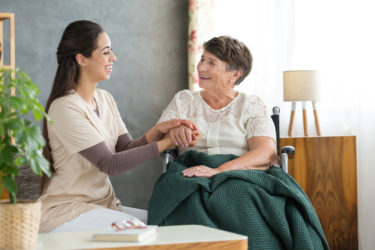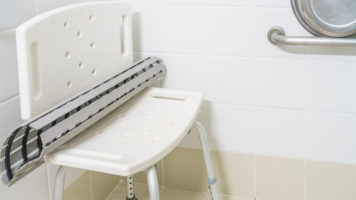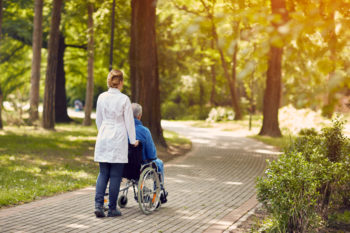Are you considering hospice care at home?
What is hospice care?
In this post, I will be talking about hospice care at home. I will also talk about how you and your family can get prepared when you are face with it.
What you should know about hospice care at home.
Hospice is care that is designed to give supportive care to people who are in the final phases of a terminal illness. Usually a hospice patient is not expected to live more than 6 months.
Hospice care is not meant to cure a person.
Instead, hospice care puts on an emphasis on helping patients live pain-free and as comfortably as possible.
Because the focus is on helping people live as comfortably as possible, hospice care at home is usually preferable.
When doctors have exhausted treatment options and a disease is terminal, it is likely they will make a recommendation for hospice care.
This is a tough emotional place to be for any family.
It is possible that as a caregiver, you will feel a sense of guilt for even agreeing to hospice care because it feels like giving up. However choosing hospice care for you and your loved one does not mean you have given up. It just means that in the current situation, the best thing you can do for your family member is help them live out the rest of their days without suffering while living around people they love.
It is therefore alright if you find that you need time to grieve and process the news.
Where necessary, seek counseling.
Hospice care at home- what to expect
A team of healthcare professionals manages home-based hospice care.
This will include:
- A doctor
- A nurse
- Social worker
- Clergy/chaplain for support
- Speech, physical and occupational therapists – if needed
- Home care professionals
Hospice programs also offer respite professionals who can step in to relieve caregivers of their work for a few hours a month.
You will need it as a caregiver so make sure to take as much advantage of it as you can.
A big change you might encounter once hospice care begins at home is that you will have more people in your home.
Home care aides, nurses and other people who work on your loved one’s case will show up at your house as part of their work.
This can be overwhelming for you and your family if you are not used to strangers coming into your home.
Voice these concerns out at the very beginning of your relationships with the professionals.
Let them know if there are things you don’t want them to touch or rooms in your house you don’t want them to enter into.
How to pay for hospice care
Medicare, most Medicaid and private health insurance companies pay for hospice care.
So if you are concerned about the financial cost of hospice care, rest assured that you will get a break when it comes to financing it.
To get more information on how Medicare covers hospice care, you can get more information by following the links below.
- The Medicare hotline can answer your questions about hospice benefits and Medicare-certified hospice programs. Call 1–800–MEDICARE (1–800–633–4227); callers with TTY equipment can call 1–877–486–2048.
- This e-booklet put out by the Centers for Medicare and Medicaid are also helpful.
- Frequently asked questions are on the Medicare website for your perusal.
- Talk to your doctor and social worker about your hospice options in your area. Once you get that, speak with the individual hospice service providers to get a clear picture of your financial obligations.
Closing Thoughts
I realize that hospice is not a comforting topic. I however realize that it is a reality thousands of families have to face each year.
In this post, I have given you an overview of what you can expect with hospice care at home and how you can begin preparing for it.
If you found this post helpful, consider bookmarking it or sharing it with someone else.










